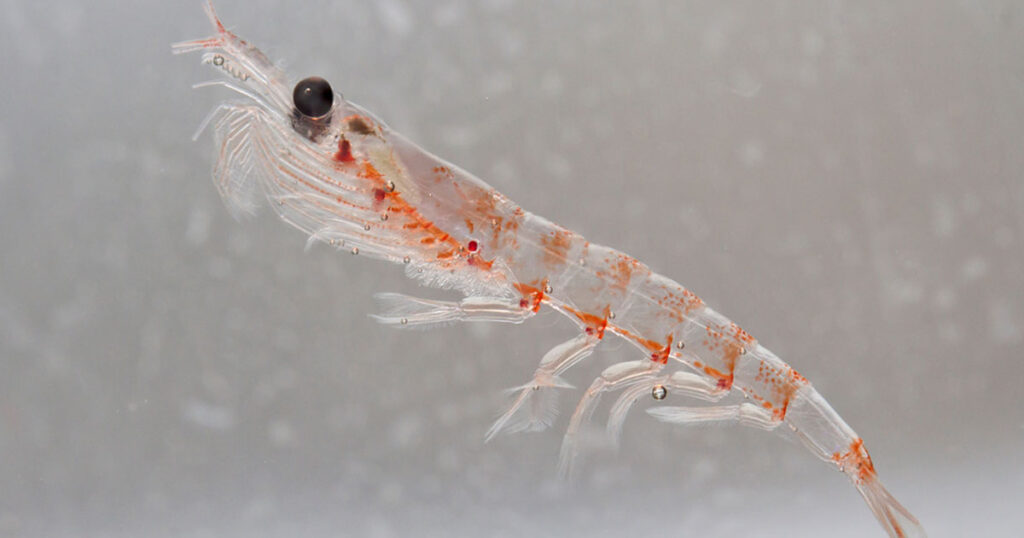
Boasting a biomass of roughly 400 million tons, Antarctic krill are a key source of food for a wide array of marine life, including sea birds, seals, penguins and whales. As with the rest of the oceanic ecosystem, krill are subject to rapidly shifting climate conditions, prompting scientists to seek a deeper understanding of how they might adapt to a changing environment.
Facing a general lack of genetic information on the species, Professors Cristiano De Pittà and Gabriele Sales from the Department of Biology at the University of Padova in Italy set out to define the krill transcriptome, or sequences of ribonucleic acid (RNA), and in doing so facilitated the discovery of key gene sequences that may play important roles in krill reproduction and survival.
In recent years, there have been concerns about potential impacts to the krill population from ocean warming and commercial fishing operations. Mapping the krill transcriptome may offer scientists crucial insight into the effects of climate change and anthropogenic activity on the dynamics of the Antarctic ecosystem. Doing so is no small feat. Though krill may be miniscule, their genome is 15 times the size of the human genome.
To this end, the research groups of De Pittà and Sales established the database KrillDB, providing a single resource where scientists can access a comprehensive catalogue of krill genes and RNA transcripts. This database represented a powerful bioinformatic tool for examining molecular processes in krill. Funded in part by the Promega 2019 qPCR Grant Program, researchers subsequently rolled out an updated database, KrillDB2, which includes improvements to the quality and breadth of the sequences covered and the information associated. Their corresponding study, published summer 2022 in Scientific Reports, identified a series of genes involved in the krill molting cycle, the reproductive process and sexual maturation, and included never-before reported insights into the expression of microRNA precursors and their effect on krill physiology.
The 2019 Promega qPCR Grant Program offered recipients $10,000 in free PCR reagents and related products, as well as access to Promega technical services and training teams.
Researcher and awardee Alberto Biscontin said of the grant’s impact on their project: “RNA sequencing approaches allow us to determine the level of expression of thousands of genes with a single experiment. The standard in the field is to define transcript expression levels by quantitative RT-PCR to technically validate RNA-seq results. We have been relying on the GoTaq® qPCR solutions by Promega for years.” He added, “We have used the GoTaq® 1-Step RT-qPCR System to compare the level of expression of candidate genes with those obtained from RNA-seq analysis. This allowed us to verify at any time the reliability of our bioinformatics pipelines.”
In the future, researchers plan to maintain the KrillDB2 database with the latest genome and transcriptome sequencing data, to provide the most comprehensive integrative analysis possible. They intend to develop a multi-crustaceans database to support future comparative genomics studies. The KrillDB2 database may also serve as a model to develop other databases for similar species.
Learn more about the GoTaq® 1-Step RT-qPCR System.
Read more about the 2019 qPCR Grant winners.
We’re committed to supporting scientists who are using molecular biology to make a difference. Learn more about our qPCR Grant program.
Related Posts
Latest posts by AnnaKay Kruger (see all)
- Elephants May Call Each Other By Name - July 16, 2024
- Studying Episodic Memory through Food-Caching Behavior in Birds - April 16, 2024
- A Silent Killer: Tracking the Spread of Xylella fastidiosa - March 27, 2024
